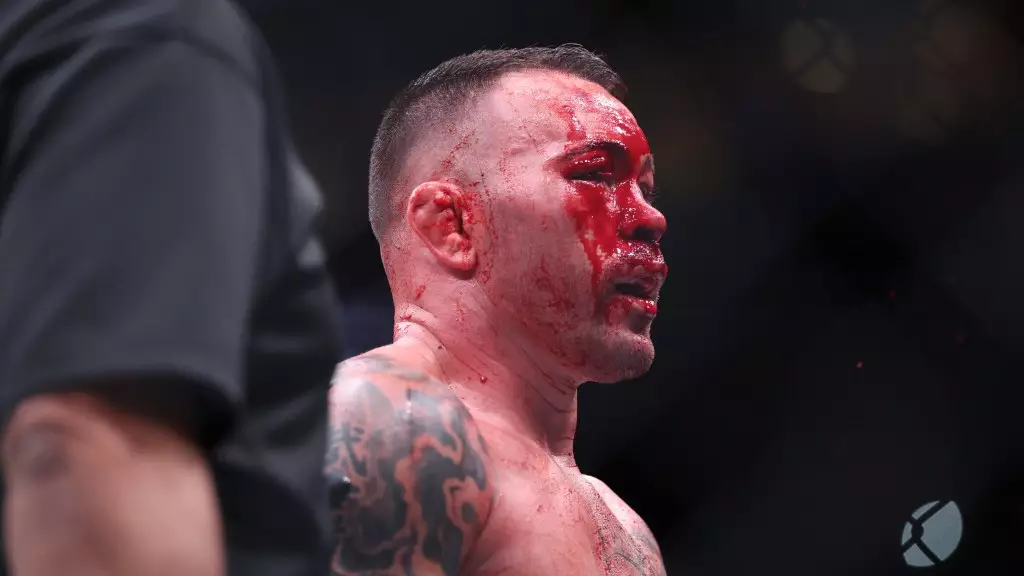In the unpredictable landscape of mixed martial arts, fighter relationships often encapsulate a mix of camaraderie and competition. Recently, Colby Covington found himself in the spotlight, navigating a tumultuous bout against Joaquin Buckley at UFC on ESPN 63. The match, held at the Amalie Arena in Tampa, Florida, culminated in a doctor stoppage due to a concerning injury—specifically, a severe cut on Covington’s eyelid that impeded his vision. Despite his frustration with the fight’s conclusion, Covington later reflected on the role of his corner, particularly Chael Sonnen, shedding light on the nuances of the fighter-corner dynamic.
While Covington expressed his dissatisfaction with the stoppage, he acknowledged the love and concern that lay behind Sonnen’s decision-making. During a Twitch stream, Covington conveyed a profound respect for his cornerman, who grappled with the notion of throwing in the towel. “Chael cares about me – he’s a real one,” Covington stated, emphasizing how Sonnen’s instincts came from a place of genuine concern for his welfare. This admission underscores a vital aspect of MMA: the significance of a reliable corner team that prioritizes the fighter’s well-being above all else.
In the fight’s opening rounds, Covington struggled, finding himself on the losing end as Buckley showcased effective strategy and technique. Yet, Covington’s mindset was clear; he believed he was on the precipice of a comeback as Round 3 unfolded. He claimed that he was beginning to regain momentum and was prepared to swing the fight in his favor. Covington’s confidence, even while battling physical limitations, speaks to the relentless spirit of warriors in the octagon—an attribute that clearly defines his career thus far.
Covington’s bravado in the face of adversity is not just mental fortitude but speaks to a larger narrative within the sport about resilience. Fighters often confront highly physical, mentally taxing situations where persistence is essential. Despite the injury, Covington argued that he was prepared to endure, stating, “I was doing it for the company.” This sentiment highlights the sacrifice fighters make, often transcending personal pain for the sake of performance and entertainment.
Ultimately, Covington’s account of this episode reveals deeper narratives of care that extend beyond the cage. The fighter-corner relationship often goes understated amid the chaos of match night. Covington’s narrative isn’t merely about lamenting a loss, but rather about respect for the caution exercised by his corner, showcasing how even the strongest spirits can appreciate the warmth of concern amid the brutal sport of MMA. This incident serves as a poignant reminder that in the world of competition, hearts matter just as much as fists, inspiring both fighters and fans to appreciate the profound connections that exist within the realm of the fight—a narrative of empathy and resilience that deserves recognition.

